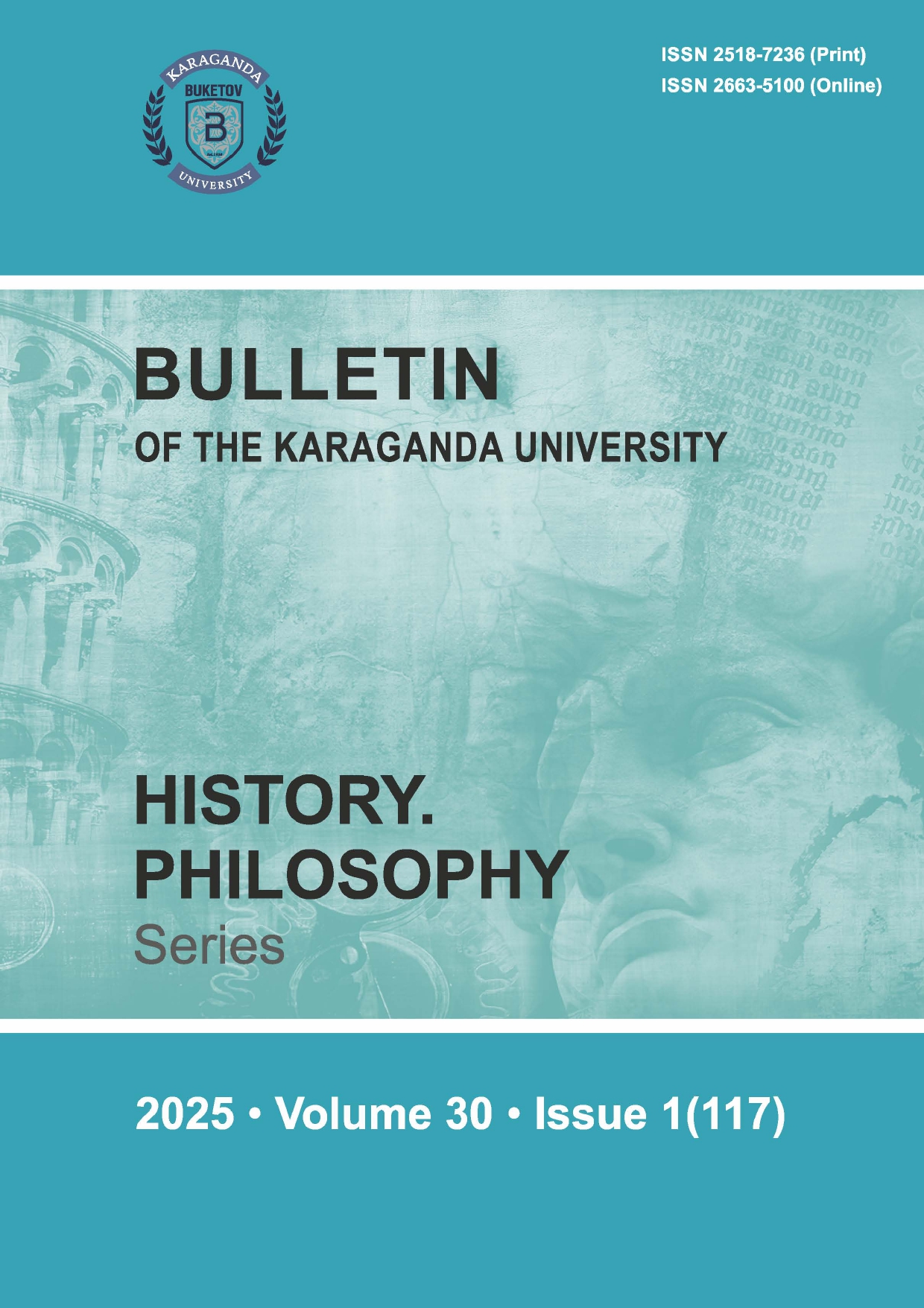The issue of women’s equality in the intellectual legacy of Turkism: a historicalcultural analysis (late 19th — early 20th century)
DOI:
https://doi.org/10.31489/2025hph1/186-197Keywords:
Turkism, women’s rights, Kazakh society, national identity, intellectual heritage, religionAbstract
At the end of the 19th — the beginning of the 20th century, the women’s movement, an important part of global social changes, had its own characteristics, determined by the socio-cultural level and political situation in different countries: in European countries, it was based on feminist ideas, in Russia, it was linked to revolutionary changes and acquired a socio-political character. Under colonial influence, in Kazakh society, it became an integral part of the collective struggle for social renewal and the preservation of national identity. Novelty of the study: In the intellectual heritage of Ziya Gokalp and Ismail Gasprinsky, the ideas concerning the issue of women’s equality and their influence on Kazakh society have been analysed. The results of the study indicate that the ideological influence of the leaders of the Turkism movement was reflected in the works of the Alash intelligentsia, with due consideration of local particularities, playing a significant role in the process of shaping national consciousness. Thus, it can be argued that the issue of women’s equality became
an important element of modernization in Turkic peoples, combining Islamic principles and traditional values, which led to the creation of a unique model of gender equality, reflecting national characteristics




